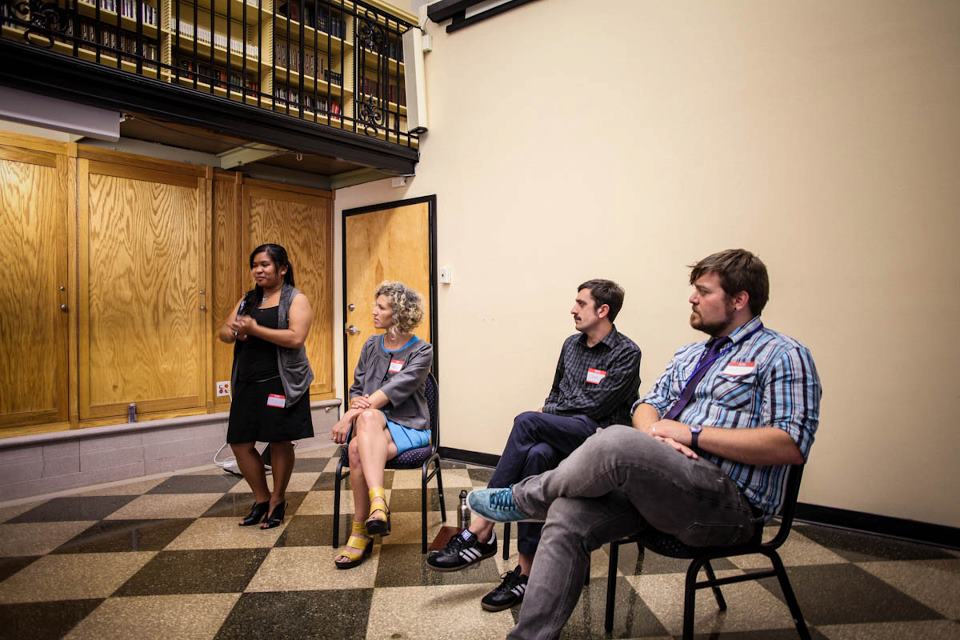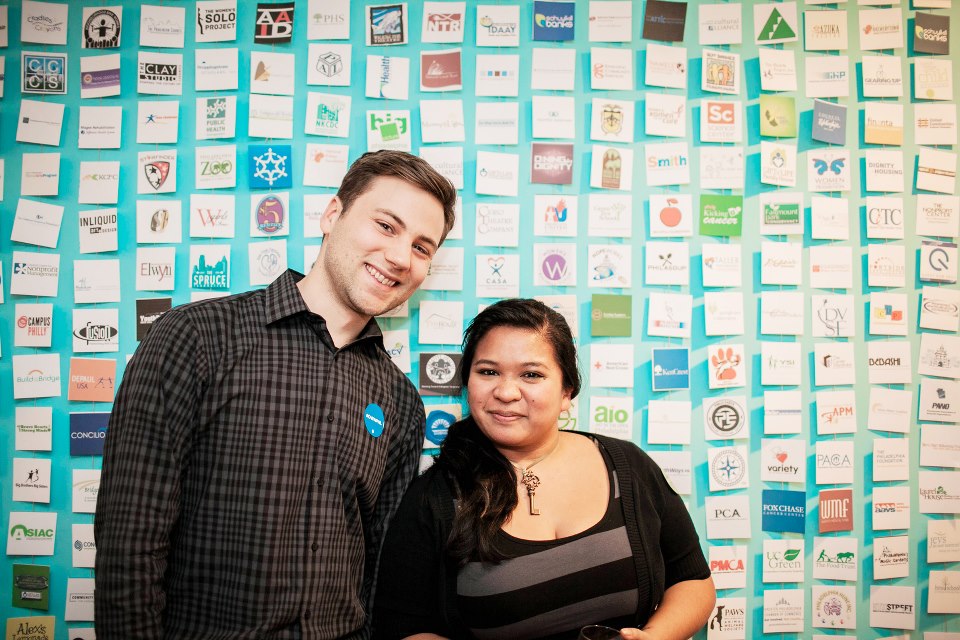Talking about the crucial intersection of people and social justice: A Q&A with Mo Manklang
 October 30, 2019
Category: Featured, Medium, People, Q&A
October 30, 2019
Category: Featured, Medium, People, Q&A
All this month we have been bringing you special content celebrating Generocity’s 10th anniversary: Q&As with Technically Media CEO Chris Wink, Generocity’s former editor, Julie Zeglen, and its former staff writer Alexander Vuocolo. The series concludes tomorrow with a Q&A with Sandra Baldino, the person who founded Generocity in 2009.
Today, the Q&A is with Mo Manklang, formerly Generocity’s community manager, and currently the communications director for the U.S. Federation of Worker Cooperatives. Manklang bridged the early and current iterations of Generocity, and is held in high esteem by members of both for the significant work she did during her five years at the organization.
Generocity: Were you with Generocity from the start? Tell us what you did and what it was like.
Mo Manklang: After a long stint working in the arts, I joined Generocity about six months into its publishing life, in December of 2011. I joined as a community manager, one of many hats I would go on to wear over the course of my time at Generocity.
I remember being incredibly excited about the small but dedicated team, and delving into a fledgling organization. At that time, the site was both a collection of news articles covering the nonprofit sector, and also a donor tool, similar to Kickstarter which actually began just around the same time.
We were headquartered in Wayne, PA, but were always out in the field, meeting in coffeeshops in Philly as a team and then breaking off to meet with community organizations across the region.

Mo Manklang, left, speaks at a Philly Social Good Meetup at the Free Library of Philadelphia, June 14, 2012. (Generocity file photo)
Generocity: What was your greatest challenge with Generocity? And your greatest triumph?
Manklang: In a lot of ways, my greatest challenge was my greatest success as well. I stepped up to fill a gap in leadership, and while it was a huge challenge to steer the ship during that 2013-2015 period; at the same time, it was a real joy to work with Kristen Gillette, Alex Vuocolo, Wyatt Levine, and Sharon Rice to keep the ship afloat while also building some incredibly strong relationships that are still bearing fruit today and continually pushing ourselves to produce, thoughtful, useful content.
I especially remember our editorial strategy meetings that were a confluence of great reporting chops from both Kristen and Alex, and the community-centered perspective that was gained through the relationship building that myself and Sharon were up to. I feel really proud of the team from that period — really finding the core of Generocity as we transitioned from multi-faceted donor/volunteer/news product to focusing in on what we do best — content and community.
Generocity: In what ways has your understanding of issues, the city, etc., been shaped by the time you spent writing for Generocity?

In this 2013 photo, Mike Kaiser and Mo Manklang stand in front of a wall with logos from the more than 400 community organizations who had created profiles on Generocity since it launched. (Generocity file photo)
Manklang: Generocity began at a time when Philadelphia itself was changing so much. I think what started as a great idea from Sandra Baldino — to share out the moving news and information that was primarily directed at philanthropists and the wealthy — evolved with the city into an incredibly important news source to understand how nonprofits and social enterprises were pushing progress in the areas that needed it the most.
Particularly as the national state of affairs was becoming more and more visibly fraught, Generocity became the lens through which I delved deeply into the issues of inequality in the city that needs to be addressed, the people who are doing the hard work to address those issues, and also the relentless dedication and innovation of community folx.
Generocity: What is your favorite Generocity memory?
Manklang: It’s hard to pin down one specific memory — I tend to think most about the amazing people whose story we told along the way. There was the very first story about Morgan Berman’s fledgling project MilkCrate, which has evolved into a staple of Philadelphia engagement.
Then there was meeting Kevin Upshur for the first time, who turned the bar that his mother left him into the phenomenal community anchor that is the Strawberry Mansion Learning Center.
Just before I left Generocity, I remember seeing Shani and Abdul-Aliy from the Black and Brown Workers Collective being interviewed and feeling happy to leave the organization knowing that it was on the right track, following the stories that matter.
Generocity: What is your prediction, what will Generocity be in 10 years?
Manklang: In 10 years, my hope would be that Generocity will have evolved to be a community-centered resource in several cities, giving a voice to community organizers and marginalized folx in a cohesive way that helps people, just by reading it, to understand just how intersectional all of our issues are, and makes space for in-depth collaboration that is transformational both for folx on the ground and executive directors at our anchor institutions in Philly.
Generocity sits in a really crucial intersection of people and social justice issues in our city and I hope to see the strong reporting and slate of convenings continue to evolve along with the needs of Philadelphia.
Trending News










